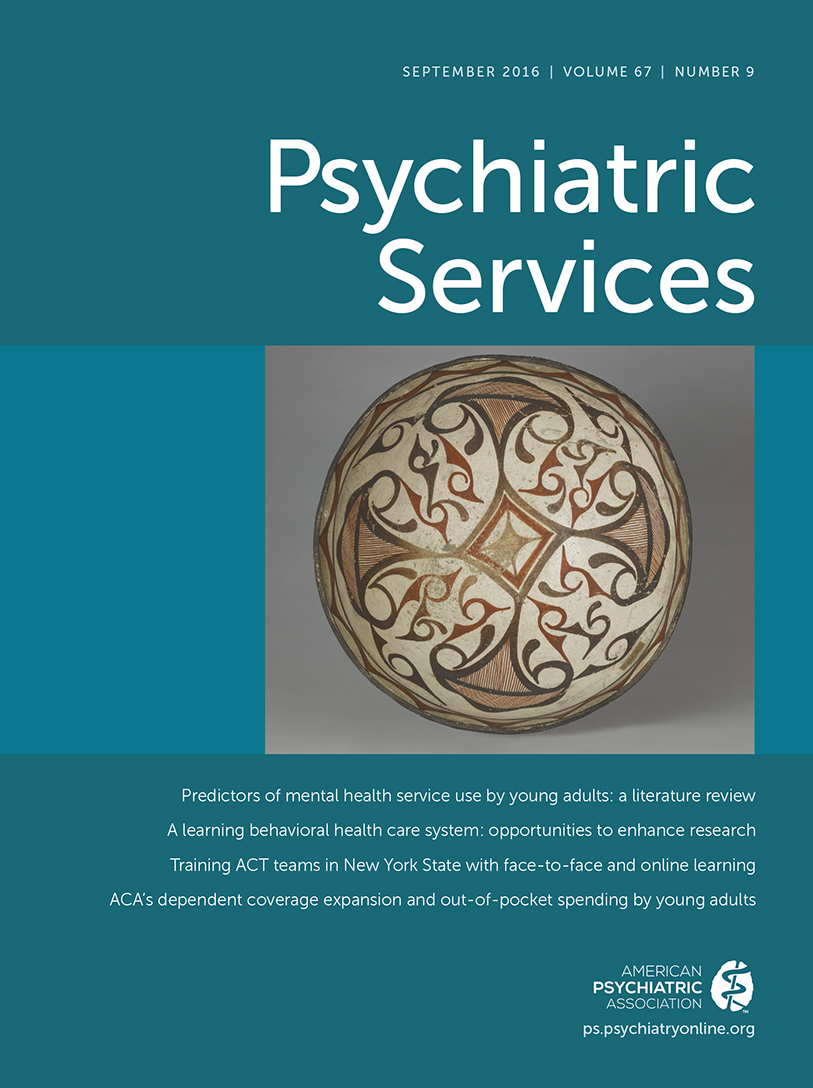Reasons for Discontinuing Attendance at a Group Intervention Among People With Serious Mental Illness
TO THE EDITOR: Despite the documented effectiveness of many treatments, research has shown that a large proportion of mental health consumers discontinue treatment. This phenomenon is referred to in the literature in negative terms, such as “noncompliance” and “nonadherence” (1), and those who discontinue treatment are often referred to as “dropouts.” In the study reported here, we investigated reasons for and experiences of stopping attendance, from the perspective of consumers who discontinued treatment.
Semistructured telephone interviews were conducted with 23 people with a serious mental illness who began attending a 20-session, manual-based group intervention between 2014 and 2015 but who stopped attending after less than 60% completion. The intervention was offered at agencies providing outpatient psychiatric rehabilitation services in Israel. Ethical approval for the study was obtained, and all participants provided written informed consent. Most were men (N=13, 57%) and never married (N=13, 57%). Ages ranged from 21 to 57 (mean±SD age=42.3±11.8). Qualitative analysis of interview data was conducted. Two judges independently identified the various categories for each theme and discussed the themes until agreement was reached for all categories. Agreement between judges ranged from moderate (κ=.66) to high (κ=.93).
Approximately half of the sample (N=11, 48%) described their experience of the intervention as positive, and about a fifth (N=5, 22%) described it as negative. This is a surprising finding if it is assumed that persons who have a positive experience would continue attending an intervention. It appears, however, that the choice to stop attending was independent of the positive experience.
Discontinuation was not necessarily associated with negative feelings. In fact, neutral feelings about the decision to stop attending were most common (N=9, 39%). The remaining study participants were evenly divided in terms of positive or negative feelings (N=7, 30%). This finding challenges the widespread assumption that treatment discontinuation is necessarily a negative occurrence, as implied in the negative term “dropout” (2–4).
Although the most frequently cited reason for discontinuation was not feeling good about the group (N=10, 43%), substantial proportions decided to stop attending because of logistics (for example, reasons related to jobs or to relocation) (N=7, 30.4%) or an exacerbation of their symptoms (N=5, 22%).
In summary, discontinuing attendance at a manual-based group intervention before completion was attributable to a range of factors in this sample. Discontinuation did not necessarily reflect a negative experience of the intervention. Those who discontinued were much more likely to describe their experience of the intervention as positive rather than as negative. The small sample does not allow us to generalize the findings, but future research in this area is warranted. Access to recovery-oriented services should include “guilt free” self-determined exit, and those who decide to discontinue treatment should not be labeled as “dropouts” or deemed to have experienced the intervention as coercive. Respecting and supporting consumer choice of intervention “dosage” may help shift the focus from service standards to person-tailored treatment delivery. Conceptualizing nonattendance as a legitimate choice rather than a negative outcome may help broaden the boundaries of and experience of care.
1 : Family interventions in schizophrenia: an analysis of non-adherence. Acta Psychiatrica Scandinavica 100:136–141, 1999Crossref, Medline, Google Scholar
2 : Clients’ reasons for terminating psychotherapy: a quantitative and qualitative inquiry. Psychology and Psychotherapy: Theory, Research and Practice 79:529–538, 2006Crossref, Medline, Google Scholar
3 : Is dropout after a first psychotherapy visit always a bad outcome? Psychiatric Services 63:705–707, 2012Link, Google Scholar
4 : Reasons for terminating psychotherapy: a general population study. Journal of Clinical Psychology 66:965–977, 2010Medline, Google Scholar



